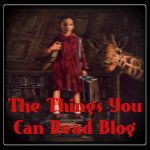You Are What You Read
When you “lose yourself” inside the world of a fictional character while reading a story, you may actually end up changing your own behavior and thoughts to match that of the character, a new study suggests.
In a nutshell, researchers at Ohio State University found that research participants who took part in the study's "experience-taking" process, while reading novels with characters who were different from the participant were found to have more favorable opinion/attitudes toward that group, and were less likely to stereotype. According to Geoff Kaufman, who led the study as a graduate student at Ohio State, and who is now a postdoctoral researcher at the Tiltfactor Laboratory at Dartmouth College.
“You have to be able to take yourself out of the picture, and really lose yourself in the book in order to have this authentic experience of taking on a character’s identity.”
This research will appear online in the Journal of Personality and Social Psychology and will be published in a future print edition.
Here are out thoughts on this subeject: Good mature readers do this instinctively however young or immature readers need to learn how to experience a book in this manner. The Things You Can Read posted about this back in the summer in a post entitled Active Readers. Check it out: Active Readers
To read the full article on this interesting research, click on over to Ohio State University's site. Let us know what you think about this research, here at The Things You Can Read.
Happy Reading!
The Things You Can Read
Believe In Truth, Beauty, Freedom, Love, and the Power of Books!

Happy Reading!
The Things You Can Read
The Things You Can Read



No comments:
Post a Comment
Your Comment is awaiting moderation. It will appear once it has been approved.